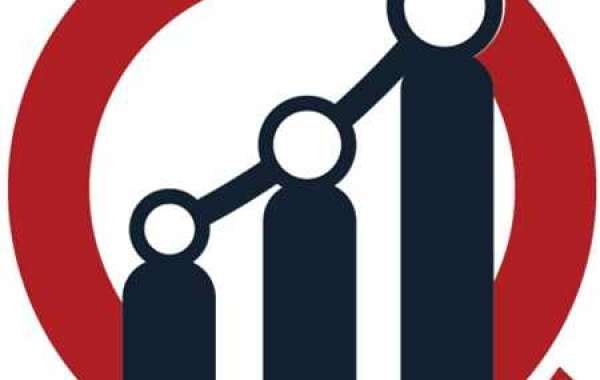The second group consists of those who have no idea about the need to protect personal information when they use social media platforms or the Internet. Regardless of the group, to which an individual belongs, there are ways to get personal information without the individual’s conscious knowledge that they give away the said type of information. Therefore, it is important to have a clear understanding of the pitfalls of the disclosure or sharing of personal information. Unscrupulous individuals and other third-party groups, intent on selling or exploiting personal information, are not considerate of the financial and emotional consequences in the event of the breach of one’s privacy and the unlawful use of personal information. However, even those, who possess knowledge of privacy issues, identity theft, and the illegal acquisition of personal information, are not immune to exploitative attacks, designed to capture and obtain personal information without prior and written consent from the owners of the said sensitive data. Thus, the beta version of the game Data Dealer helps people understand the pitfalls of free circulation and sharing of personal information.
Free Circulation and Sharing of Personal Information
People, belonging to the second group described earlier, have no clear understanding of the personal or financial impact of their unconscious sharing and circulation of personal information. In other words, they use the Internet or social media sites without consciously making steps to prevent an unwanted sharing of personal data. Due to their ignorance of the consequences of certain personal actions, they are vulnerable when it comes to the issues of identity theft and different forms of scams. Therefore, it is best to have some advanced knowledge of the importance of securing personal information. Nevertheless, even knowing the potential problems of unsecured disclosure of personal information does not guarantee a full protection from unscrupulous individuals and nefarious organizations, intent on stealing personal information, which can happen in two ways. First, it is possible to collect personal information through the help of disgruntled employees or hackers. Second, one can acquire somebody’s personal information by interacting with social media sites or websites that require the entry of personal data before people can access the said cyber gateways. Consequently, there must be some ways to protect users from sharing of their information unintentionally and an unauthorized disclosure of it.
Understanding the Importance of PIPEDA
One might also argue that it is easier to defend against hackers or phishers, but it is a tremendous challenge to shield personal information from disgruntled employees and unscrupulous business owners who have no qualms in selling or using their clients’ information in order to earn money in an unethical or illegal manner. Governments of many countries try to protect their citizens’ information from an authorized usage. For example, Canadian citizens are protected through a legal framework known as the Personal Information Protection and Electronic Document Act (PIPEDA) (Zureik 51). This particular law prohibits the unauthorized disclosure of personal information without prior approval and expressed consent of an individual (Minister of Justice, “PIPEDA” 29). Thus, the law makes it extremely difficult for companies and various organizations to use their clientele’s personal information beyond the practical understanding of how a customer’s personal information is supposed to be utilized. In other words, there are certain aspects of the client’s personal information that must be considered with the utmost confidentiality.
Effective Protection?
Canadians must realize the value of the PIPEDA when it comes to the protection of personal information. It is also imperative to mention that another legislative framework, called the Privacy Act, is a law, created to protect the privacy of Canadian citizens. This critical statute explains how government agencies are expected to behave when it comes to personal information. More importantly, this law prohibits any government representative or government organization from initiating and enforcing any action for the purpose of collecting personal information (Minister of Justice, “Privacy Act” 7). Thus, it is a critical step in creating a new culture in regards to handling personal information.
The Game: Data Dealer
Even though it is still in its beta version, the online game Data Dealer provides an educational and insightful look into how businesses and unscrupulous individuals attempt to collect and share personal information without the expressed approval and written agreement of individuals. As a result, the perpetrators of the said illegal acts are guilty of violating the statutes, contained within the PIPEDA and the Privacy Act. Thus, it is imperative to learn more about these illegal acts. At the same time, it is also important to develop appropriate defense mechanisms to mitigate the impact of such actions.
There are at least three things that impress people with regards to Data Dealer. First, this game is easily accessible because people can play it without paying any type of fees, and it is easily downloadable or installed on a personal computer or mobile device. Second, the game creates a visual representation of the complex process of illegally acquiring personal information from unsuspecting victims. In other words, the users of the game automatically have a full understanding of the entire process, which makes it easier for them to digest and appreciate the various nuances of this phenomenon without having to spend a great deal of time studying its various elements. Third, the game provides an easy-to-follow representation as to how various components and players work directly or indirectly to obtain illegally personal information for the purpose of unjust and unlawful gains. Therefore, the game is of great help to users since it allows them to understand how they can give access to their personal information unknowingly and unintentionally to third-party stakeholders.
The Game’s Importance with Regards to Data Protection
There are at least two major areas of benefit that a player can acquire by playing this game. First, for those, who have no prior knowledge of the potential dangers of illegally disclosing or sharing of personal information, the game serves as study guide on this issue. Second, those, who are knowledgeable about security and personal risk of sharing sensitive information, can understand how business organization and unscrupulous people are able to induce them to disclose their personal information directly or indirectly (Christl et al. 5). For example, it is easy to entice people to interact with certain websites or online games if prizes are offered or if their intellectual capabilities are challenged, for example, in quiz type or an IQ test formats. Knowing these things will help many people be more careful about sharing their information.
As mentioned earlier, the game provides an overview of a complicated process behind the illegal manipulation and extraction of personal information for the purpose of unlawful gains. Thus, the game heightens the need for vigilance, especially when it comes to the involvement of government agencies and big businesses. In other words, the game makes it easier to discuss the value of the PIPEDA and the Privacy Act; at the same time, it encourages people to collaborate and make improvements to the existing laws regarding privacy and the appropriate disclosure of private information (Davidson 216). Therefore, this is a major milestone in changing people’s mindset in regards to personal data protection.
Improving the Game
The game offers a realistic view of the illegal and unethical actions of perpetrators as well as the use of techniques or ploys to lure in and exploit unsuspecting victims. However, there are several ways to improve the game. First, the game will benefit from adding more details and layers regarding background activities after websites and businesses collect one’s personal information. If there is a way to show other aspects of selling and acquiring of personal information, consumers or victims are able to see how they can pressure local and national leaders to create more stringent laws regarding breaches of privacy, identity theft, or the unauthorized sharing of personal information.
Another way to improve the game is to show some basic steps on how to report suspicious activity when websites, business organizations, and individuals try to acquire personal information without the expressed consent of the owners of the said data. For example, if there is an online game that compels users to disclose certain personal information before they can go the next levels, consumers must be able to report these sites so that law enforcement officers or agencies could look into the matter. The same thing can be said about supermarkets, rental businesses, delivery businesses, or other forms of services that are suspected of selling their clients’ personal information to third-party users.
Finally, one can envision the game’s ability to bring people together in order to create strength in numbers, especially when there is a need to oppose government action that might compel people to disclose sensitive information. The game might also help strengthen advocacies and non-government organizations in their fight to prevent business groups from selling or using the clientele’s personal information beyond practical purposes. Nevertheless, there is a need for an equally effective law enforcement initiative if governments want to protect their citizens from various issues, related to an unauthorized use of personal information.
Data Dealer is a game that provides the necessary background knowledge regarding the potential risks of freely circulating personal information. At the same time, it also gives an overview as to how knowledgeable individuals can become unsuspecting victims due to the sophisticated and deliberate strategies employed to make them disclose sensitive or personal information. Thus, Data Dealer aims at improving people’s awareness of the issue under discussion and helps them protect themselves from unethical and criminal practices. Moreover, the game heightens individual levels of vigilance regarding government agencies and business organizations that attempt to acquire personal information for their own selfish gains. Finally, such legislations as the Privacy Act and the PIPEDA serve as legal frameworks that protect individuals from their personal information being shared without their knowledge and consent.
About the author: Cameron Epps is a master in Literature at Michigan University. She is currently working as one of the best writers at the place where you can find cheap term papers She also studies male psychology.







